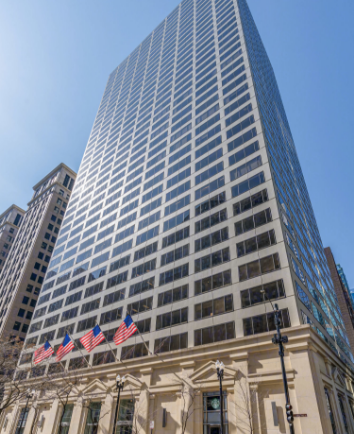Chicago Toxic Tort Lawyer

Toxic Torts
Toxic torts refer to legal claims for injuries caused by exposure to dangerous chemical substances. The nature of the diseases or injuries that victims suffer due to this exposure can be life-altering, and potentially fatal.
Toxic torts frequently involve entire groups or classes of people affected by the chemical exposure. Such cases lead to class action lawsuits that may involve possible multi-district litigation (MDL) proceedings. A third party could be liable for victim injuries if it’s determined that the party negligently failed to warn victims of the possible dangers of its product, misrepresented the possible dangers, or engaged in behavior dangerous enough to constitute strict liability.
Chicago Toxic Tort Lawyer
The result of exposure can often lead to staggering medical bills and an inability to work or carry out typical daily functions. If you or a loved one has been diagnosed with a potentially life-threatening illness as the result of exposure to a toxic substance, it is critical to seek the immediate help of a skilled Chicago toxic tort lawyer.
Call (312) 201-8600 or visit our contact page to schedule your free, no-obligation consultation with our toxic tort attorneys. We represent clients on a contingency fee basis – meaning you pay nothing unless you win.
Overview of Chicago Toxic Tort Lawyer
Chicago Toxic Tort Lawyer
Types of Toxic Torts
Diseases Caused By Toxic Torts
Frequently Asked Questions
Cook County Resources for Toxic Torts
Susan Loggans Law
Types of Toxic Torts
Toxic torts often involve unknowing exposure to dangerous chemical substances. Some cases involve occupational exposure while others involve exposure in the homes of the victims.
In addition to environmental causes of toxic torts, other common sources of toxic tort claims include pharmaceuticals and consumer products.

A few of the most common types of chemicals involved in toxic tort claims include, but are not limited to:
- Arsenic
- Asbestos
- Benzene
- Beryllium
- Chlorine
- Chromium(III) oxide (Cr2O3)
- Diacetyl
- Diesel fumes
- Dioxins
- Hexavalent chromium
- Latex
- Lead
- Manganese
- Mercury
- Methylene chloride
- Mold
- Perchloroethylene
- Pesticides
- Polychlorinated biphenyl (PCB)
- Propane
- Radiation
- Silica
- Talc
- Trichloroethylene
- Toluene
- Xylene
Diseases Caused By Toxic Torts
The victims in toxic tort cases have usually been diagnosed with extremely serious illnesses as the result of their exposure to chemical substances. In many cases, these individuals face staggering medical bills and may be unable to continue working to support themselves and their families.
Unfortunately, the symptoms of toxic substance exposure do not appear for quite some time. As a result, key evidence can be difficult—although not entirely impossible—to obtain.
It is critical for any person who has been diagnosed with a potentially life-threatening illness as the result of exposure to a toxic substance to seek the help of a skilled Chicago personal injury lawyer.
Susan E. Loggans & Associates represents people diagnosed with various diseases as the result of dangerous chemical exposure, including—but not limited to—the following:
- Aplastic anemia
- Asbestosis
- Berylliosis
- Byssinosis
- Hodgkin’s lymphoma (Hodgkin’s disease)
- Interstitial lung disease
- Leukemia
- Lung disease
- Lymphoma
- Manganism
- Mesothelioma
- Multiple myeloma
- Pneumoconiosis
- Sarcoidosis
- Silicosis
- Thrombocytopenic purpura
Frequently Asked Questions
What is the statute of limitations for filing a toxic tort case?
The plaintiff must file a claim within two years of discovering a disease or personal injury as a result of exposure. Complicating matters is that the symptoms of toxic substance exposure do not appear for quite some time. As a result, key evidence can be difficult – although not impossible – to obtain. For matters involving workplace exposure, the Illinois Workers’ Compensation Act states that claims related to toxic exposure can be filed within 25 years of the last exposure incident.
What are the odds of winning a toxic tort case?
Toxic torts are complicated cases for a number of reasons:
- First and foremost, the harm stemming from exposure to a toxic substance is often not known for months or years to come.
- This lapse in time from first exposure to discovery of harm could make it difficult to secure evidence and witnesses.
- Lawyers for the defendant could also make a case that your illness or the death of a loved one was caused by something else entirely.
For all of these reasons, we strongly recommend seeking an experienced toxic tort attorney to help you obtain full and fair compensation for current and future medical bills, loss of income, and emotional pain and suffering.
Cook County Resources for Toxic Torts
State of Illinois Tort Law
View the full text of Illinois tort laws
Illinois Environmental Protection Agency (EPA)
Learn more about air, water, and land pollution, and file illegal dumping or pollution complaints.
Chicagoland Environmental Network (CEN)
Find volunteer opportunities in nature or conservation-related activities in northeastern Illinois and surrounding areas.

Susan Loggans Law
Illness and injury from toxic substances cause not only immediate physical harm, but bring about long-lasting conditions, including cancer and other life-threatening diseases.
In addition to the emotional impact on the victim and their loved ones, there is often a significant financial impact caused by expensive medical treatments and the inability to earn a steady income.
Susan E. Loggans & Associates is committed to bringing firm justice to you and your loved ones for the harm caused by others. To ensure the best odds of winning your case and securing the largest compensation award possible, it’s imperative that you seek legal counsel at the first sign of injury or illness.
Contact our office immediately to discuss your options and lawful rights to compensation. Call (312) 201-8600 or visit our contact page to schedule a free, no-obligation consultation with our experts in toxic tort law, who will provide a complete evaluation of your case.
